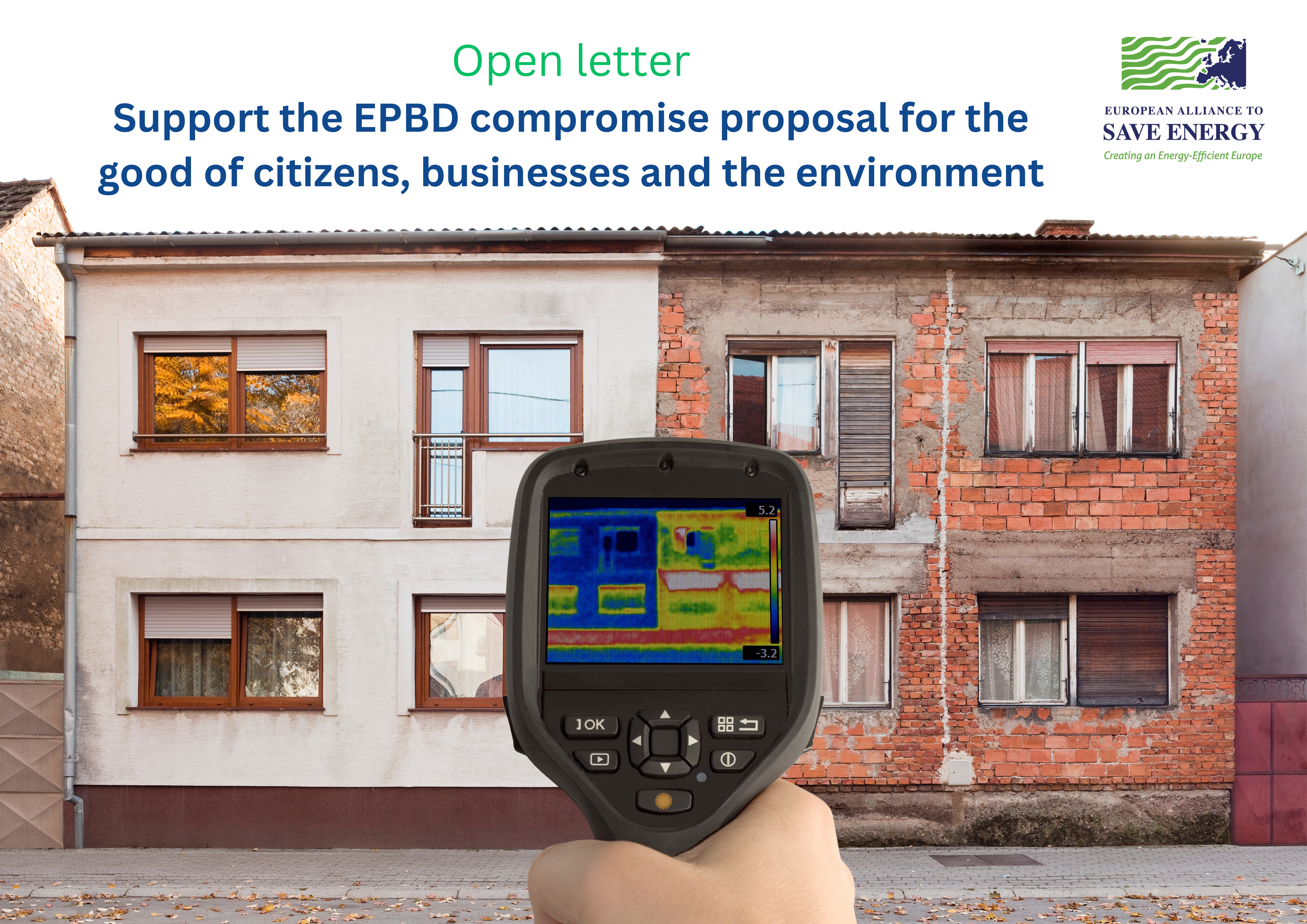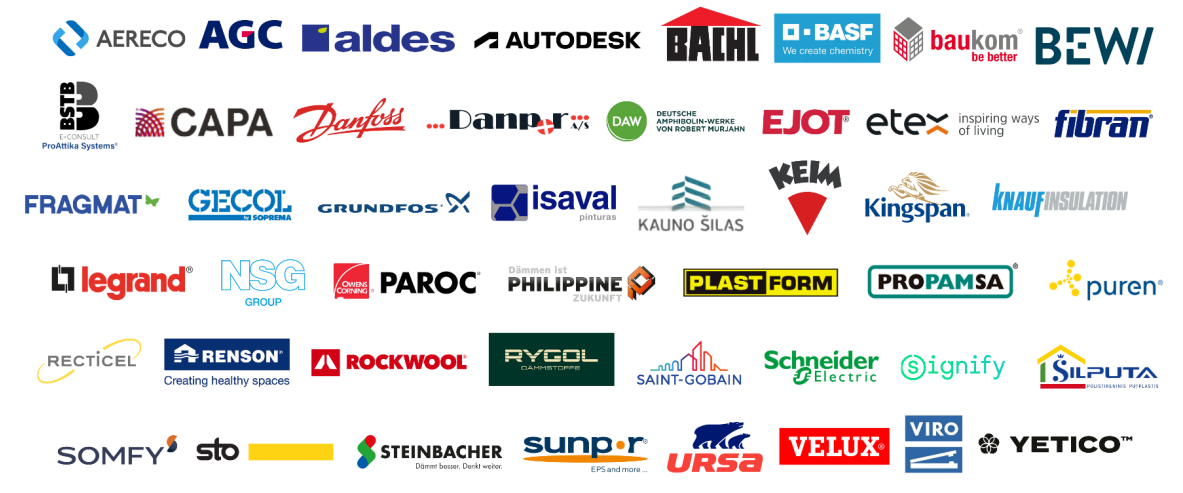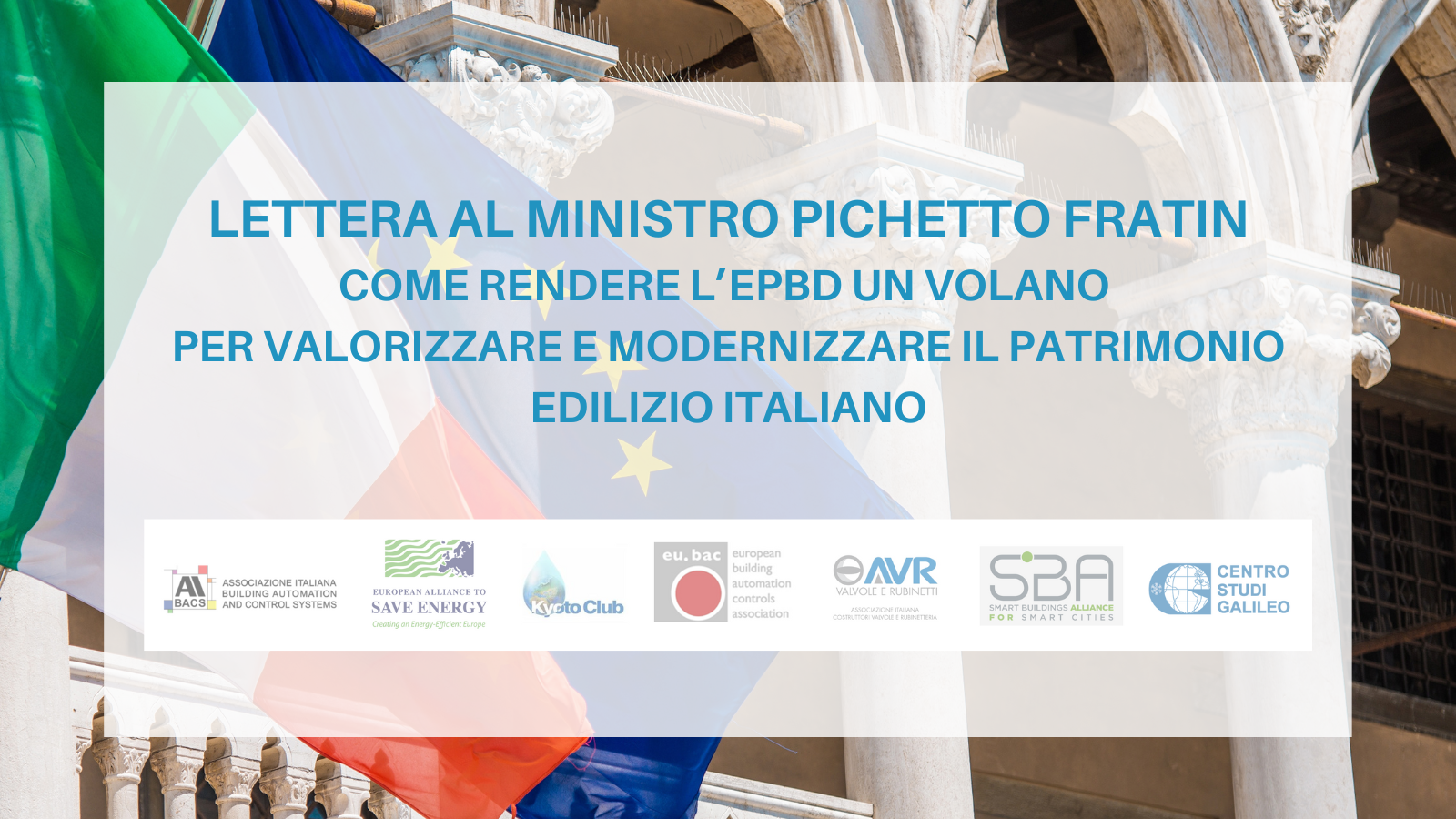EED recast: Binding energy efficiency target fills a gap in the Union’s climate toolbox, but too much flexibility is given to Member States

After several months of discussions, the EU institutions found a deal on the Energy Efficiency Directive recast (EED). The European Alliance to Save Energy (EU-ASE) welcomes the agreement as it strengthens the EU energy efficiency rules, although the leeway left to Member States may weaken the overall framework.
Brussels, 10 March 2023 – The agreement raises the EU energy efficiency target by 2030 to 11.7% for both final and primary energy, slightly lower than the REPowerEU level. For the first time, the recast makes the target binding at the EU level, as is already the case for the renewable energy and greenhouse gas emission targets. However, the governance mechanism of the target is based on indicative national contributions, which may not deliver the savings in time and at the level required.
The EU negotiators agreed on a gradual increase of the annual energy savings obligation sub-target to 1.49% of final energy consumption on average from 2024 to 2030, reaching 1.9% by the end of 2030. Lawmakers recognised the exemplary role of public buildings to deliver energy savings, setting a binding annual renovation target of at least 3% of buildings owned by public bodies and a 1.9%% annual energy saving target for public administrations.
Importantly, the revised EED provides a legal basis for the Energy Efficiency First principle (EE1), a fundamental step to ensure the principle is applied by Member States in their decisions related to the energy sector and others having an impact on energy consumption. The EE1 becomes an overarching provision to which other important EU directives, such as the Energy Performance of Building Directive or the Urban Waste Water Treatment Directive, should refer.
Monica Frassoni, President of the European Alliance to Save Energy (EU-ASE), said: “The revision of the EED is long-awaited and much needed. Binding energy efficiency targets give long-term direction and will accelerate national efforts to deliver the multiple benefits of energy efficiency to citizens, businesses and the environment. At the same time, we regret that the national contributions are not binding, which could delay the implementation. The recognition of the EE1 principle is a game changer: it confirms that in the current climate, energy and water crisis saving energy and optimising consumption is the first and more rational step to take. Now Member States must commit to deliver on the targets and increase their energy savings, without which we will not be able to meet our climate goals.”
Quentin Galland, Chairperson of the European Alliance to Save Energy (EU-ASE), said: “We welcome the deal on the EED. We appreciate the good work carried out by the EU institutions to achieve this outcome and expect the same constructive approach to close other important files of the Fit for 55 package. We are looking forward to the implementation phase so that the results are truly delivered on the ground. Conscious of the challenges and opportunities of making energy efficiency a true reality, we have started to work on the first European pact for energy efficiency skills. As leading companies in the energy efficiency sector, we are ready to play our part.”
Download the full press release here.
Media contact:
Luigi Petito
Head of Secretariat
info@euase.eu
Matteo Guidi
Policy Advisor
matteo.guidi@euase.eu
+32 493372142
About us
The European Alliance to Save Energy (EU-ASE) is a cross-sectoral, business-led organisation that ensures that the voice of energy efficiency is heard across Europe. EU-ASE members have operations across the 27 Member States of the European Union, employ over 340.000 people in Europe and have an aggregated annual turnover of €115 billion.
In a fast-changing political and economic environment, 2025 was a year of continued efforts to strengthen security, stability, and competitiveness for European businesses.
Throughout the year, our work demonstrated that energy efficiency is not only essential to achieving climate goals, but also a key driver of innovation, energy independence and sustainable long-term growth across Europe.
Strong engagement with policymakers, combined with the successful organisation of the 4th European Energy Efficiency Day, highlighted the importance of collaboration and dialogue in advancing shared objectives. Partnerships across sectors and institutions remained central to delivering impact and shaping effective energy policies.
Looking ahead to 2026, we will intensify our efforts to secure the regulatory certainty that can accelerate the energy transition, while providing businesses with the investment confidence they need and strengthening Europe’s competitiveness.
Read the full Activity Report here.





